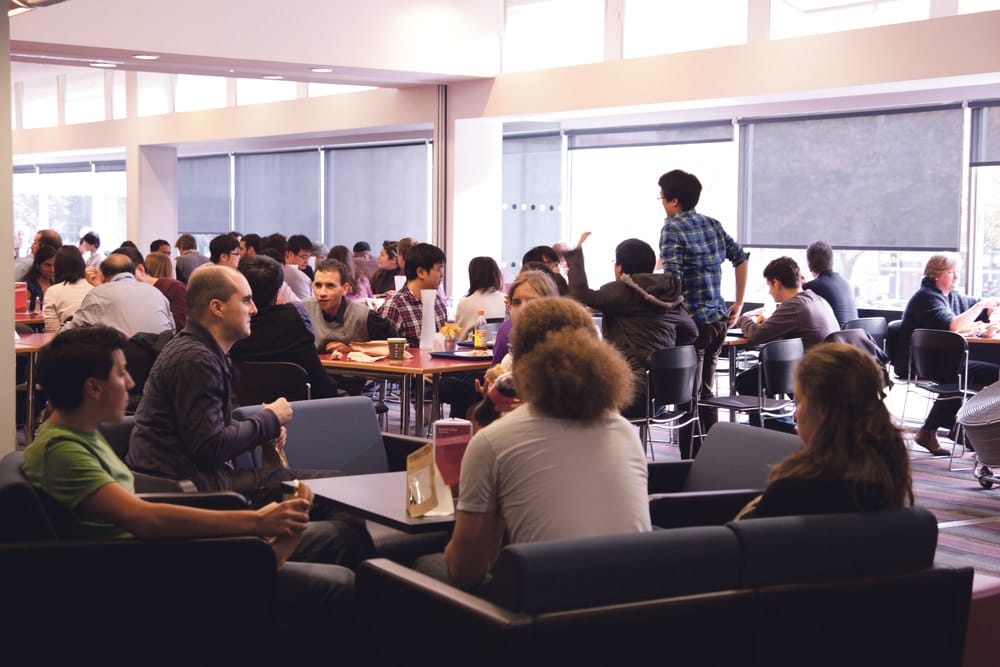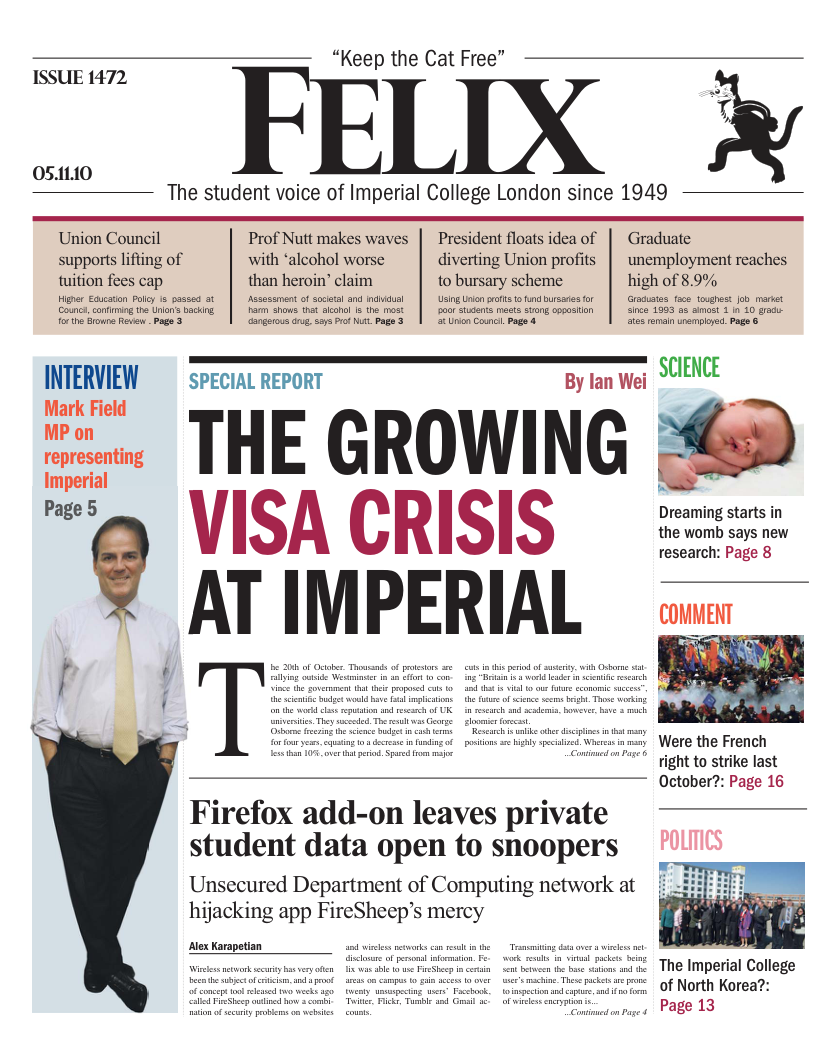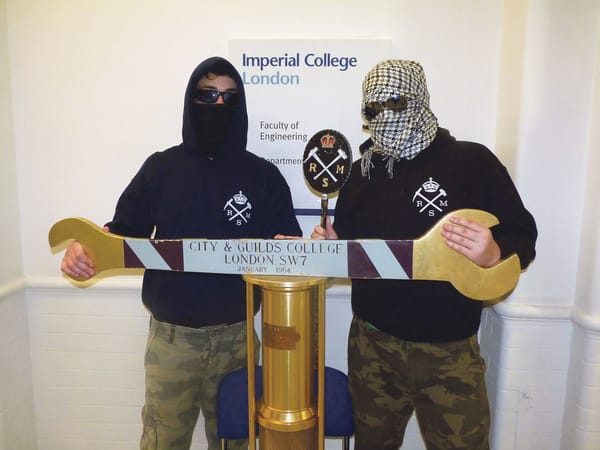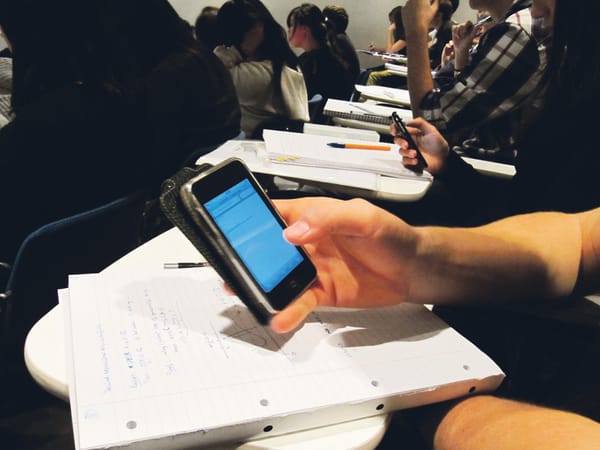The growing visa crisis at Imperial
The government's immigration cap and how it affects Imperial

The 20th of October. Thousands of protestors are rallying outside Westminster in an effort to convince the government that their proposed cuts to the scientific budget would have fatal implications on the world class reputation and research of UK universities. They succeeded. The result was George Osborne freezing the science budget in cash terms for four years, equating to a decrease in funding of less than 10%, over that period. Spared from major cuts in this period of austerity, with Osborne stating “Britain is a world leader in scientific research and that is vital to our future economic success”, the future of science seems bright. Those working in research and academia, however, have a much gloomier forecast.
Research is unlike other disciplines in that many positions are highly specialized. Whereas in many jobs, thousands of people within the UK could potentially fill the role, in research, that number is down to tens of people across the globe. This means that the immigration cap on non UK/EU immigrants introduced by the Home Secretary, Theresa May, in June could potentially have serious negative consequences on the competitiveness of the research done within UK universities.
Researchers who are resident outside and wish to work in the UK have to obtain a visa, of which there are two main types which apply to research staff, tier one and tier two.
There is a real concern that research groups will be forced to turn away some excellent candidates simply because they cannot obtain a visa
Tier one is a personal visa, where applicants have to apply through a system, giving information on their age, degree level, earnings, et cetera. This information is then assessed and given a score in several categories. Each category has a different ‘pass mark’ and applicants must pass each category in order to qualify for the visa. The length of this visa is usually a fixed term, typically around two years. There is, however, a hard cap of 600 of these visas which can be issued per month; which in October was already ‘used up’ by the 20th. On top of that, tier one visas are hard to obtain, with the ratio of tier one to tier two visas at 1:1 in the Physics department despite the department strongly advising researchers to obtain a tier one visa wherever possible.
The second type of visa is the tier two visa, which can only be applied for if the individual has a sponsorship certificate, which is issued by the university. These visas last only until the end of a contract with an individual, and individuals looking to extend or renew contracts, must also obtain a new tier two visa. There is a limit on tier two visas, with Imperial’s quota across the whole university being 82 certificates which can be issued between June 2010 and March 2011. It is worth noting that researchers who need to renew their tier two visas also count toward the quota and contracts which have ended do not ‘add’ back to the number of certificates that can be issued.
Having already used up around half the tier two sponsorship certificates which they are allowed to issue for this year, there is a real concern that nearer January, research groups will be forced to turn away some excellent candidates simply because they cannot obtain a visa. In particular, postdoctoral researchers on tier two visas looking to extend their visa after the quota has been filled, face the real risk of deportation back to their home countries though it is hoped that the extra time in the UK will entitle them to successfully apply for the different visas.
Imperial has a particularly diverse workforce. In the Physics department alone, around 25% of post doctoral researchers were hired from outside the EU from 2006-2010, highlighting the importance that high quality immigrants from outside of the EU has for research.
Universities have always disregarded where people come from because they recognise that to be the best you have to recruit the best people Professor Adrian Sutton, Imperial
Professor Adrian Sutton, Head of the Condensed Matter Theory Group in the Physics department at Imperial, expressed his concern by stating that “universities have always disregarded where people come from because they recognise that to be the best you have to recruit the best people. That is why there are so many postdoctoral researchers from outside the EEA at the top UK universities. They have been attracted by our open, inclusive culture in UK higher education. The UKBA restrictions are negating this culture, a culture which led to 3 of the 4 Nobel prize winners in the UK this year being awarded to immigrants.”
Overseas applicants already have significant disadvantages when applying to jobs within the UK. Since the ‘Resident labour market test’ was introduced, employers are forced to give precedence to any applicants who are from within the EU, when applicants have the same skills and experience listed in job adverts.
Professor Simon Gaskell, Principal of Queen Mary University of London, recently stated in an interview with the BBC, that he believes “the most damaging thing that we could do to UK higher education, UK research, UK science, is to reduce the attractiveness of this country, for overseas scientists and other researchers.”
The government is not oblivious to these concerns. Science minister David Willets and Business Secretary Vince Cable, acknowledged that there were problems with the current system when speaking at a “science question time” at the Royal Institute, on the 26th of October. However, ever since the immigration laws were introduced, it is hard not to notice that top athletes such as premiership footballers have been exempt from the restrictions, perhaps suggesting a lack of respect for the important role that research plays for the UK as a whole.
With increasing levels of bureaucracy and hoops to jump through, researchers from abroad will see the UK as a less appealing place to work. The real danger is not a cut to funding anymore, but a cut to the level of talent which helps give the UK its reputation for world class education and research. And that, for many people, is much, much worse.







